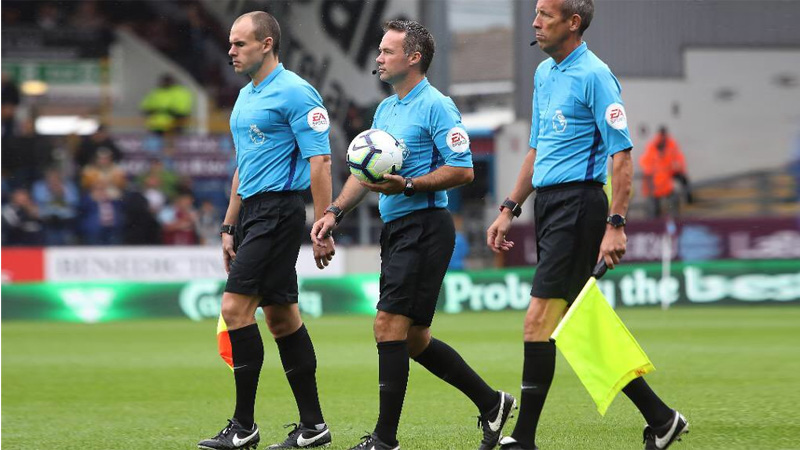In the world of football, the spotlight often shines brightly on the players, managers, and referees, but there is another crucial figure on the pitch who plays a pivotal role in ensuring fair play and maintaining the integrity of the game: the linesman.
Often referred to as assistant referees, these unsung heroes work tirelessly along the touchlines, assisting the main referee in making accurate decisions and upholding the rules of the game.
The primary responsibility of a linesman is to assist the referee in determining offside decisions. Positioned on either side of the field, they meticulously monitor the positioning of players during attacking moves, using their expert judgment and flag signals to indicate when an offside offense has occurred.
Additionally, linesmen also play a crucial role in determining throw-ins, goal kicks, and corner kicks, providing valuable input to the referee’s decision-making process.
In this article, we delve into what is the role of a linesman in football, shedding light on their indispensable contribution to the beautiful game of football.
What Is the Role of a Linesman in Football?
In football, a linesman, also known as an assistant referee, has several important roles during a match. Their primary responsibility is to assist the referee in making decisions, particularly about offside calls and determining if the ball has gone out of play.
Here are some key roles and responsibilities of a linesman:
Offside Decisions
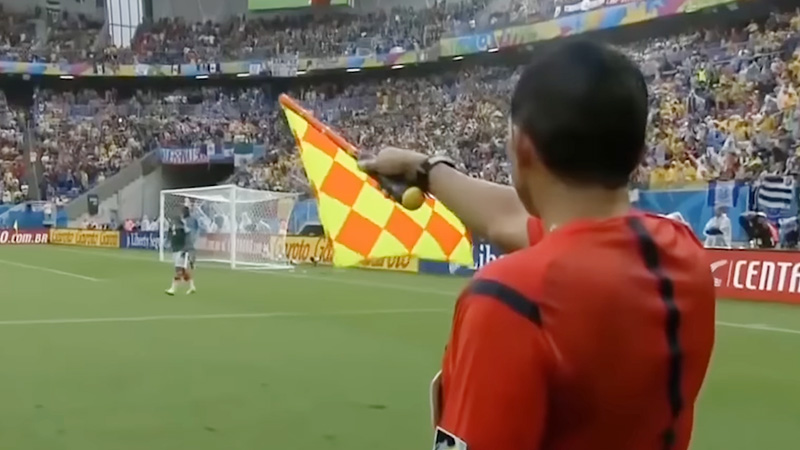
The linesman helps the referee determine if an attacking player is in an offside position when the ball is played to them. They position themselves along the touchline and use their judgment to decide if a player is ahead of the second-to-last defender when the ball is played.
Ball Out of Play
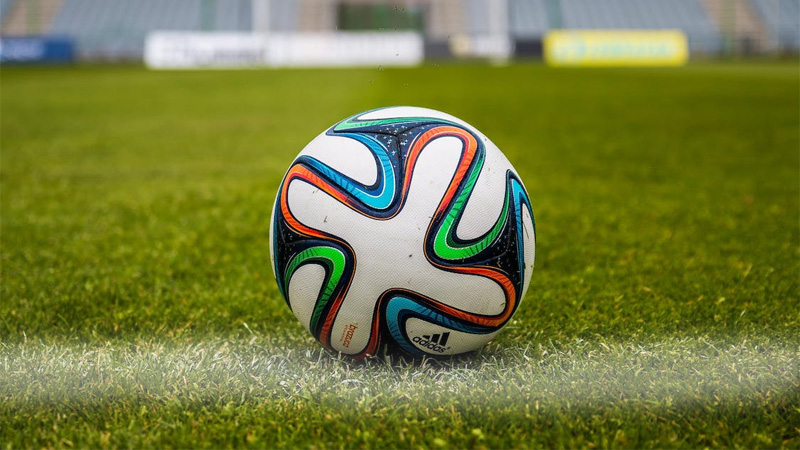
The linesman signals when the ball has fully crossed the touchline or goal line, indicating a throw-in, corner kick, goal kick, or goal. They assist the referee in making these decisions, especially when the referee’s view is obstructed.
Foul Play
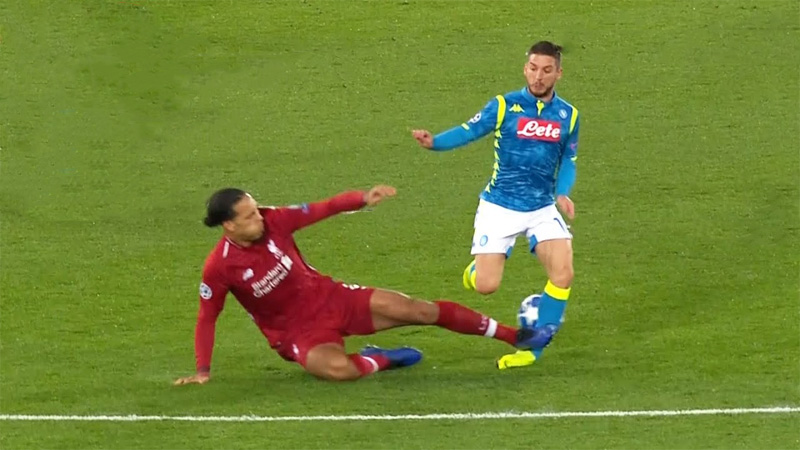
The linesman may also assist the referee in identifying fouls or misconduct that occur near the touchline. They can provide input on incidents such as handballs, fouls, or other infringements that may have been missed by the referee.
Substitutions
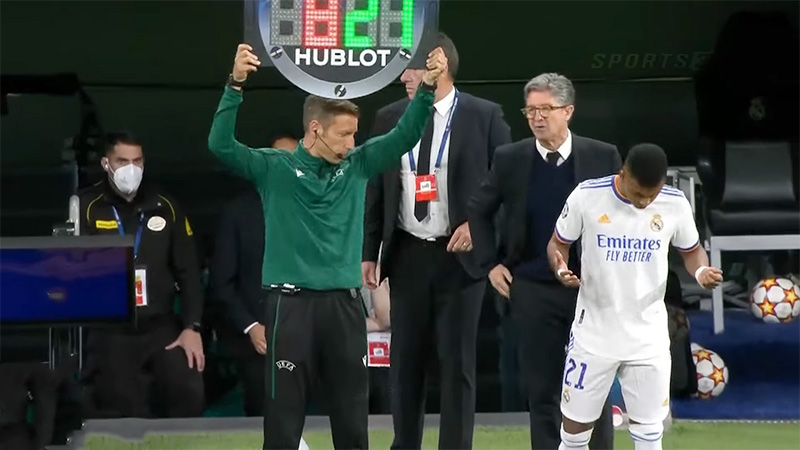
The linesman assists the referee in monitoring player substitutions. They ensure that substitutions are made within the rules and that the correct number of players is on the field at all times.
General Assistance
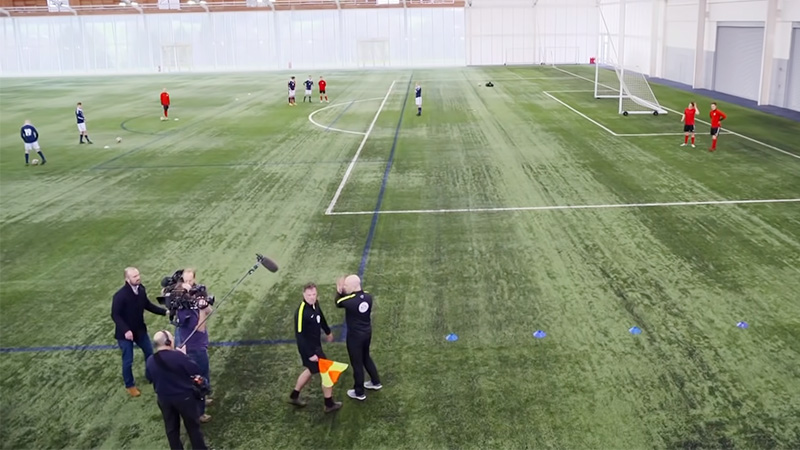
Linesmen are also responsible for providing general assistance to the referee throughout the match. This includes signaling for offside, fouls, or other incidents that may have been missed by the referee.
It’s important to note that the decisions made by the linesman are advisory in nature, and the final decision rests with the referee. The linesman’s role is crucial in ensuring fair play and maintaining the integrity of the game.
What Is a Linesman Position?
In football, the linesman, also known as an assistant referee, is an official who assists the referee in making decisions during a match. The linesman’s position is along the touchline, on either side of the field. They typically stand at the halfway line and move up and down the touchline as the game progresses.
The linesman’s position allows them to have a clear view of the touchline and the area near it. This positioning enables them to make accurate judgments on offside calls, whether the ball has gone out of play, and other incidents that occur near the touchline.
During the game, the linesman communicates with the referee through signals and flag gestures. For example, they may raise their flag to indicate an offside offense or wave it to signal that the ball has gone out of play.
They also use their position to provide input to the referee on fouls, misconduct, or other incidents that may have been missed.
The linesman’s role is crucial in assisting the referee in making fair and accurate decisions. Their positioning and constant observation of the touchline area help ensure that the game is played within the rules and that the correct decisions are made.
What Qualities Do You Need to Be a Good Linesman?
To be a good linesman in football, several qualities and skills are essential. Here are some of the key qualities that contribute to being effective in this role:
Knowledge of the Game
A good linesman should have a deep understanding of the rules and regulations of football. They should be familiar with offside rules, fouls, misconduct, and other important aspects of the game.
This knowledge allows them to make accurate decisions and provide valuable input to the referee.
Excellent Vision and Concentration
Linesmen need to have excellent vision to accurately judge offside situations and determine if the ball has gone out of play. They must be able to focus and concentrate for the entire duration of the match, as they need to be alert to any incidents that occur near the touchline.
Fitness and Stamina
Football matches can be physically demanding, and linesmen need to be fit and have good stamina. They must be able to keep up with the pace of the game, move quickly along the touchline, and maintain their concentration throughout the match.
Communication Skills
Effective communication is crucial for a linesman. They need to be able to communicate clearly and efficiently with the referee, players, and other officials. This includes using hand signals, flag gestures, and verbal communication to convey information and assist in decision-making.
Decision-Making Ability
Linesmen often have to make split-second decisions, particularly in offside situations. They need to have the ability to make quick and accurate judgments based on their observations and knowledge of the game. This requires good judgment, confidence, and the ability to handle pressure.
Teamwork and Collaboration
Linesmen work closely with the referee and other officials, so they need to be able to collaborate effectively as a team. They should be able to communicate and coordinate with the referee to ensure consistent and fair decision-making throughout the match.
Professionalism and Integrity
A good linesman should demonstrate professionalism and integrity in their role. They should be impartial, unbiased, and make decisions based solely on what they observe and the rules of the game.
They should also conduct themselves in a respectful and fair manner towards players, coaches, and spectators.
These qualities, combined with experience and ongoing training, contribute to the effectiveness of a linesman in football. By possessing these attributes, a linesman can contribute to the smooth running of the game and help ensure fair play.
How Does a Linesman Signal a Goal?
When a goal is scored in football, the linesman, also known as an assistant referee, plays a role in signaling the goal to the referee and the players. Here’s how a linesman typically signals a goal:
Positioning
The linesman positions themselves along the touchline, near the goal line where the goal was scored. They ensure they have a clear view of the goal area and the entire field.
Eye Contact
As the ball crosses the goal line and a goal is scored, the linesman makes eye contact with the referee to confirm that they have seen the goal.
Flag Gesture
The linesman then raises their flag vertically with their arm extended to shoulder height. This flag gesture is a visual signal to indicate that a goal has been scored.
Running
After signaling the goal with the flag, the linesman may run towards the halfway line or a designated area to indicate that the goal has been awarded. This running gesture helps to reinforce the signal and inform the players and spectators that the goal is valid.
Communication with the Referee
The linesman communicates with the referee to confirm the goal and provide any necessary information, such as the goal scorer’s identity or any potential infringements that may have occurred during the goal-scoring play.
It’s important to note that the final decision regarding the goal rests with the referee. The linesman’s role is to assist the referee in making accurate decisions, including signaling when a goal has been scored. Their flag gesture and subsequent actions help ensure that the goal is acknowledged and recorded correctly.
FAQs
Can a linesman overrule the referee’s decision?
No, a linesman cannot overrule the referee’s decision. The linesman’s role is to assist the referee by providing input and information, but the final decision rests with the referee. The linesman’s input is advisory in nature and helps the referee make accurate decisions.
What happens if the linesman and the referee disagree on a decision?
If the linesman and the referee disagree on a decision, the referee’s decision prevails. The linesman’s role is to provide their perspective and assist the referee, but the referee has the ultimate authority to make decisions on the field.
Can a linesman award penalties?
No, a linesman cannot directly award penalties. The decision to award a penalty kick lies solely with the referee. However, the linesman can assist the referee by providing information or signaling if they have a clear view of a penalty offense that the referee may have missed.
How are offside decisions made by the linesman?
The linesman uses their judgment and positioning to make offside decisions. They position themselves along the touchline and observe the positions of the attacking players when the ball is played to them.
Can a linesman make decisions on fouls or misconduct?
While the linesman can provide input on fouls or misconduct that occur near the touchline, the final decision lies with the referee. The linesman can signal to the referee if they have observed an incident, such as a handball or a foul, that the referee may have missed.
Signing Out
So, that was all about what is the role of a linesman in football. These dedicated individuals work diligently to ensure that the game is played fairly and within the boundaries of the rules.
Their keen observation skills, quick decision-making abilities, and unwavering focus contribute significantly to the smooth running of matches.
Despite often facing criticism and scrutiny, linesmen remain committed to their duty, striving to make accurate calls and assist the referee in maintaining the integrity of the game.
Their presence on the touchlines is a testament to the importance of teamwork and collaboration in football. Next time you watch a football match, take a moment to appreciate the efforts of the linesmen, the unsung heroes who play a vital role in upholding the spirit of fair play.
Without them, the game would lack the precision and fairness that we all cherish. So, let us acknowledge and applaud the invaluable contributions of these dedicated individuals who ensure that the beautiful game of football continues to captivate and inspire us all.

